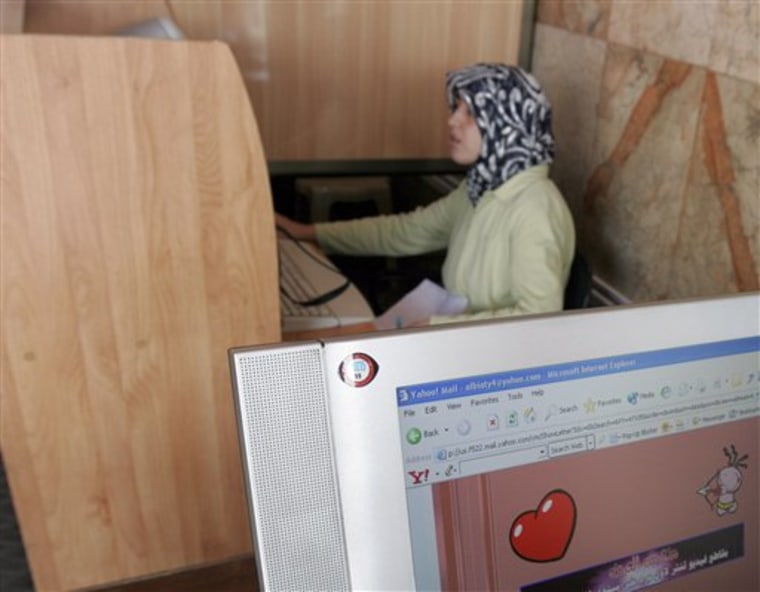The Iraqi government has decided to crack down on Internet service providers and ban sites that incite violence or carry pornography, officials said Tuesday, a move that has been strongly criticized by freedom of speech advocates as a dangerous first step toward political censorship.
The plan to strengthen government control of content and usage will require Internet cafes — and later the service providers as well — to obtain licenses that are subject to government review and cancellation if compliance requirements are not met.
"All Web sites that glorify terrorism and incite violence and sectarianism, or those that violate social morals with content such as pornography will be banned," communications ministry spokesman Sameer al-Hasoon told The Associated Press by phone Tuesday.
Al-Hasoon refused to divulge further details of the committee's recommendations, but said he expected them to be approved by the Cabinet next week. The next step would be for the government to send the draft legislation to parliament.
Another official said the ministry is planning to license five of the 10 wireless Internet service providers currently operating in Iraq. He refused to say why the five were chosen, but said the tightened restrictions will implemented in coordination with the Interior Ministry's anti-Internet crimes directorate.
The official spoke on condition of anonymity as he was not authorized to make statements to the media.
The plan to tighten government controls has raised concerns about the protection of constitutional freedoms. Since the fall of Saddam Hussein in 2003, Iraq has had relatively lax restrictions on Internet providers compared with some of its Muslim neighbors.
The officials said their concern is primarily over sites that promote violence. They also say they want to ensure that the online fare readily available at Internet cafes does not get too far out of step with Iraq's social mores.
But the Baghdad-based independent Journalistic Freedom Observatory denounced the step as an "attempt to control the flow of free information on the Internet and limit the knowledge of the citizens."
The group also claimed the plan violates the Iraqi constitution, which guarantees the freedom of mail, telegrams, phone and electronic communications. The constitution, enacted in 2005, says such communications cannot be "monitored, tabbed or revealed."
"Excuses of protecting national security or moral standards are unacceptable," the JFO said in a statement. "It is only being used to censor Internet service and control freedom of expression."
The group said the plan opens the door for tighter controls, particularly over political discussions, dissent or debate on issues that are sensitive to the government.
It says the controls are a throwback to the days of Saddam, when access to the Internet was limited to just one provider and e-mail and phone calls were monitored and censored by the Ministry of Communications and security agencies.
After Saddam was toppled in the 2003 U.S.-led invasion, dozens of wireless Internet providers started business and hundreds of Internet cafes were opened in the capital, Baghdad, and other provinces.
"No one opposes blacking out Web sites that offer pornography because of the damage such sites bring to society," said Hassan al-Kaabi, the 26-year-old owner of an Internet cafe in Baghdad's eastern Shiite neighborhood of Sadr City. "But the government decision that deals with Web sites that incite violence and terrorism is vague and needs more clarification."
Al-Kaabi, who has 12 computers and offers wireless service to about 80 subscribers, said he is worried about his future and the gains Iraq has made since Saddam's ouster.
"This is just like a trap to me," he said. "This will definitely affect our business."
